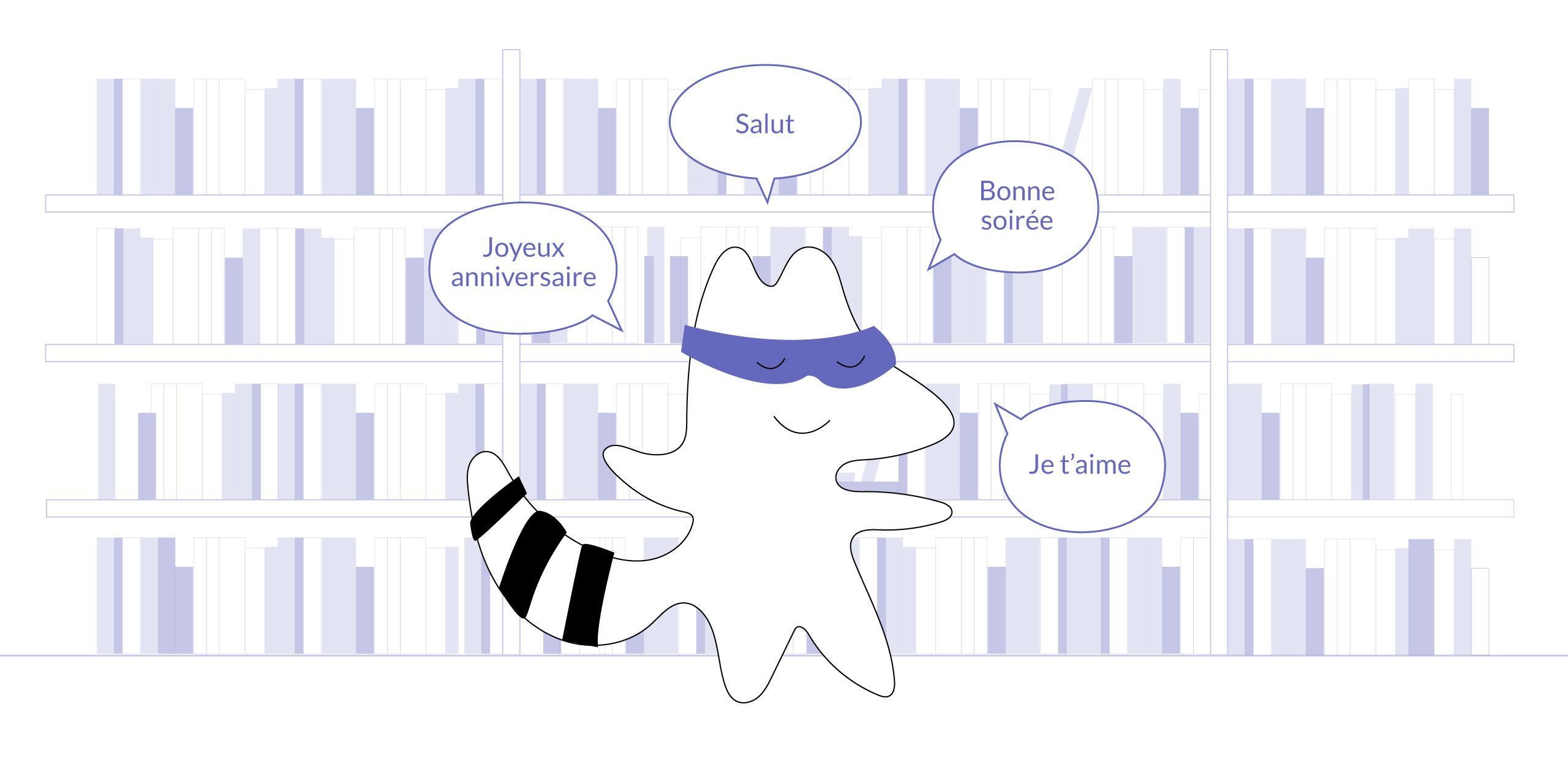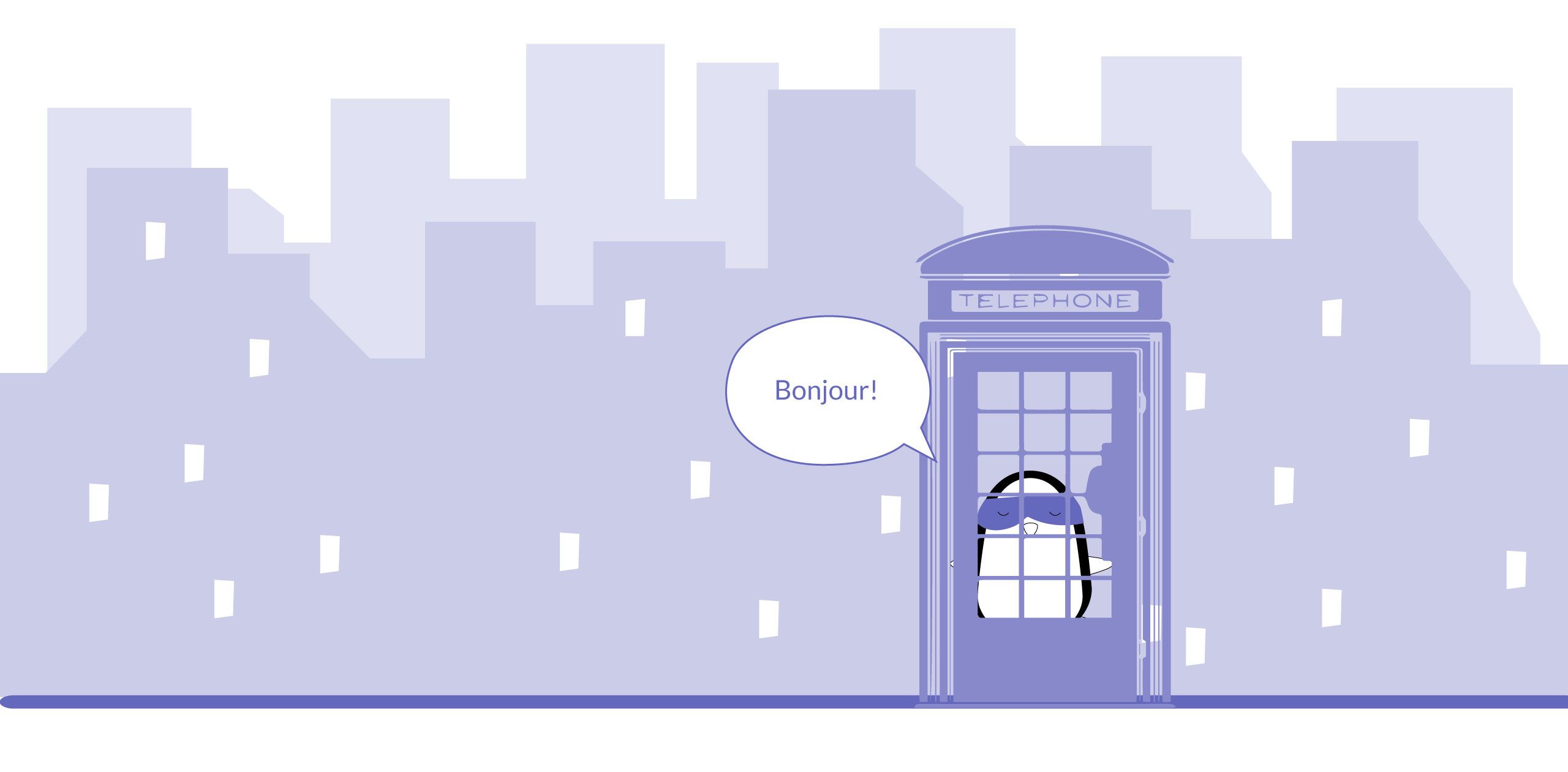
The devil, they say, is in the details — and nowhere is this more evident than in the nuances of language. Whether you're an intrepid language learner or a well-traveled Francophile, mastering the rich tapestry of the French language requires a keen appreciation for subtleties.
One such detail that often trips up learners is the translation of "new" — a seemingly simple word with not-so-simple translations. Understanding when and how to articulate the idea of something being "new" in French isn't just about adding words to your vocabulary list; it's about imbuing your speech with the authenticity and cultural context that makes language come alive.
So, let's embark on a journey through the French landscape and discover how to convey the concept of "new" with precision through nouveau and neuf.
Learn French with Langster
Nouveau
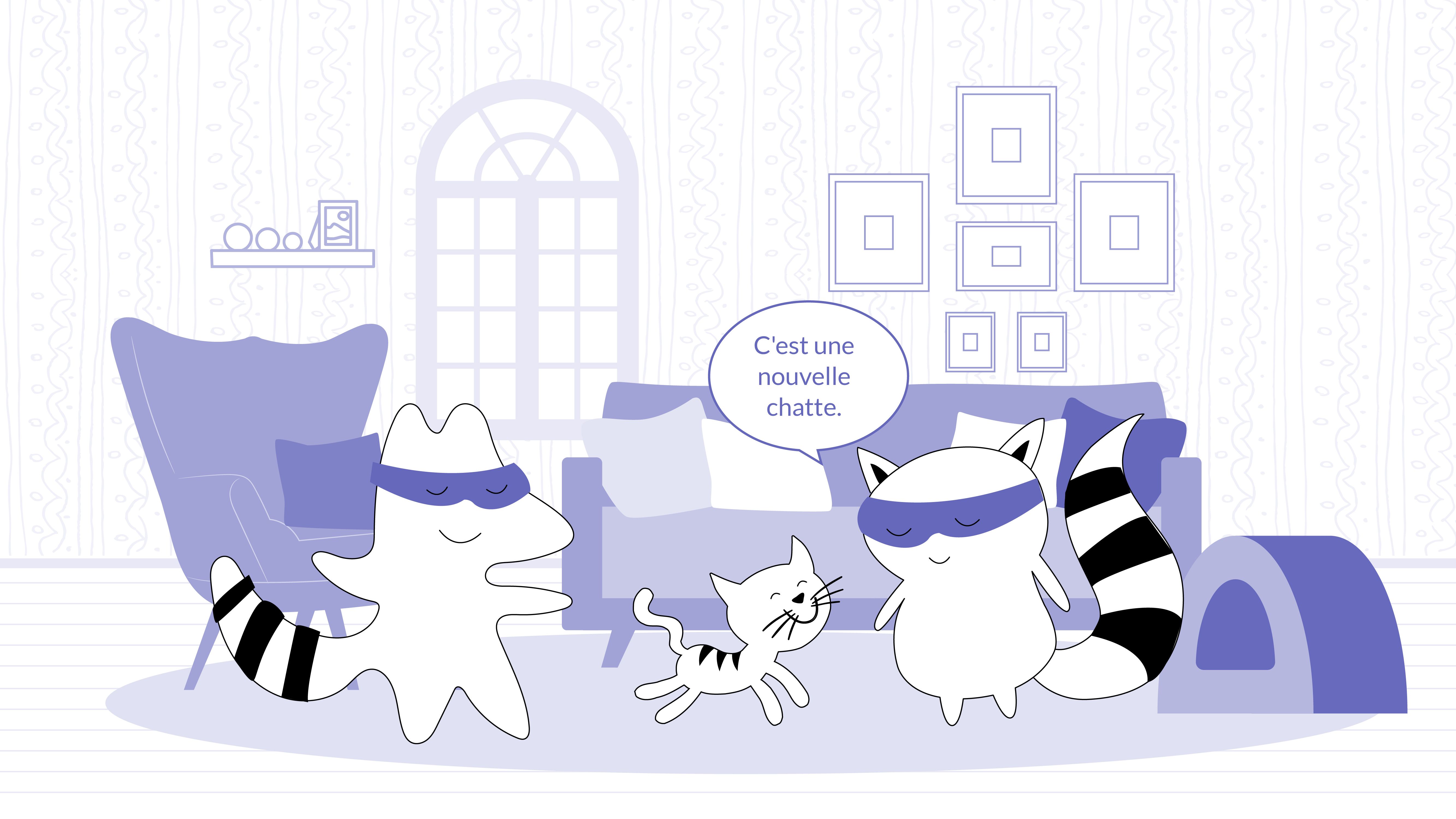
This chameleon of a word is the quintessential French term for "new" — you’re probably already familiar with it because of the famous term “Art Nouveau.”
It's an adjective full of vigor and excitement, ready to breathe life into the blandest of statements. Whether it's a new dress, a fresh start, or a recent development, nouveau stands as the flag-bearer of change and innovation.
French
English
C'est nouveau.
It's new.
The Morphology of Nouveau
In true French fashion, nouveau is no stranger to gender and number agreement. The form varies depending on whether the noun it describes is masculine, feminine, singular, or plural.
Here's how it takes shape:
| Gender | Number | Form | French example | Translation |
|---|---|---|---|---|
| masculine | singular | nouveau | un nouveau livre | a new book |
| masculine | plural | nouveaux | des nouveaux livres | new books |
| feminine | singular | nouvelle | une nouvelle chaise | a new chair |
| feminine | plural | nouvelles | des nouvelles chaises | new chairs |
| Gender | Number | Form | French example | Translation |
|---|---|---|---|---|
| masculine | singular | nouveau | un nouveau livre | a new book |
| masculine | plural | nouveaux | des nouveaux livres | new books |
| feminine | singular | nouvelle | une nouvelle chaise | a new chair |
| feminine | plural | nouvelles | des nouvelles chaises | new chairs |
For example, here, the word nouveau will change depending on the cat’s sex since French has different names for cats in this case:
French
English
C'est un nouveau chat.
It’s a new cat.
C'est une nouvelle chatte.
It’s a new cat.
As you can see, nouveau usually comes before the noun it describes.
When to Use Nouveau?
When something is recent, newly bought, or of current interest, nouveau is the word to reach for. It's the headline of a newspaper, the buzzword in a meeting, the exclamation point in a fresh conversation.
Use it to inject novel excitement into your French expressions.
Neuf

While nouveau takes the spotlight, neuf waits calmly in the wings. This term also translates to "new," but with a twist. Neuf doesn't just signify "recently made," it carries the sense of "brand new" or "in mint condition."
If nouveau is about the newness of an idea or an occurrence, neuf is all about the physical — the state of newness in products or the freshness of a wound.
French
English
C'est neuf.
It's brand new.
The Morphology of Neuf
Neuf is a versatile word with different forms for masculine and feminine nouns. Here's how it manifests based on the noun it describes:
| Gender | Number | Form | French example | Translation |
|---|---|---|---|---|
| masculine | singular | neuf | un livre neuf | a brand new book |
| masculine | plural | neufs | des livres neufs | brand new books |
| feminine | singular | neuve | une voiture neuve | a brand new car |
| feminine | plural | neuves | des voitures neuves | brand new cars |
| Gender | Number | Form | French example | Translation |
|---|---|---|---|---|
| masculine | singular | neuf | un livre neuf | a brand new book |
| masculine | plural | neufs | des livres neufs | brand new books |
| feminine | singular | neuve | une voiture neuve | a brand new car |
| feminine | plural | neuves | des voitures neuves | brand new cars |
Keep in mind that neuf usually comes after the noun it describes.
When to Use Neuf?
Neuf implies usage in contexts where the integrity of something in its newness is paramount. For instance:
- a new phone, straight from the box,
- a new home, with that post-construction smell,
- a new law, just implemented.
In these cases, using neuf instead of nouveau imparts the precision of the condition, ensuring that the newness is undisturbed by the past.
Distinguishing Between Neuf and Nouveau
So, when should you use neuf instead of nouveau?
The clarity comes in recognizing when the focus of "new" rests on an item's physical state of freshness or the recentness of an experience.
This subtle distinction is important, as it clarifies not just the temporal aspect of "new" but also its material form.
Nuance and Context
As with any two translations of a seemingly identical concept, both of these French words exist to serve distinct purposes. The choice between them is a dance that language learners and native speakers engage in with fluency and grace.
The nuance that each word brings to the table is a testament to the richness of the French language and its capacity for fine-tuning the message.
Understanding the Rhythm of Language
To truly master the art of using French words nouveau and neuf, one must attune oneself to the rhythm of language as it naturally unfolds in conversation or writing.
This means paying attention to idiomatic expressions, common collocations, and the specific cultural norms that may influence the choice between the two words.
When to Use Each Word
The French word nouveau means you're describing something as new to a person in a temporal, abstract meaning, i.e., in a more general sense. As such, this word is used when there is an implication that an object could have a previous owner or might have been used by someone else.
French
English
J'ai acheté un nouveau chapeau dans un magasin d'occasion.
I bought a new hat in a second hand shop.
On the other hand, reserve neuf for the physical quality of newness, such as with tangible objects or when the connotation of pristine condition is implied or required. Neuf implies that something has never been used before or is brand new.
French
English
Catherine a acheté un vélo tout neuf.
Catherine bought a brand-new bike.
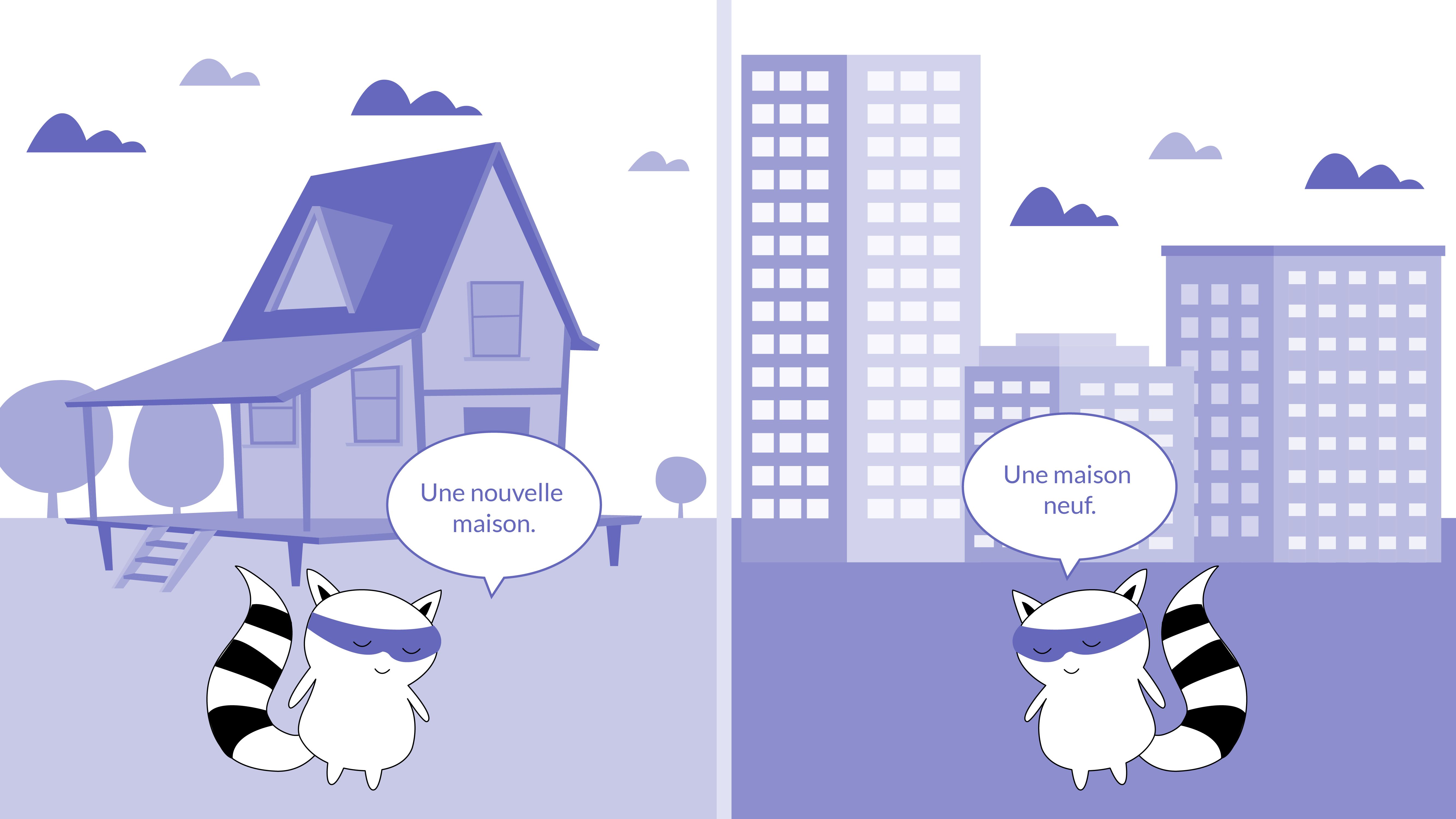
Sometimes, both can be the correct option:
French
English
Tom a acheté une nouvelle maison.
Tom bought a new house.
Tom a acheté une maison neuf.
Tom bought a new house.
In the examples above, Tom might have bought a house new to him but that was owned by someone else earlier, or a brand new, recently built house overall.
Embracing the Nuances of Language Learning
As you continue your journey into the linguistic tapestry of French, remember that the beauty and challenge of language lie in its depth and breadth. The nuances of nouveau and neuf are just the beginning of a much larger exploration. They're not merely words; they're pathways into the heart of French culture and communication.
So, whether you're adding a nouveau item to your vocabulary list today or discovering the neuf possibilities each new day brings, do so with the joy of language learning and the commitment to accuracy.
After all, what is language, if not the ever-evolving expression of "something new" each time we speak?
Final Note: A Bientôt, Nos Amis!
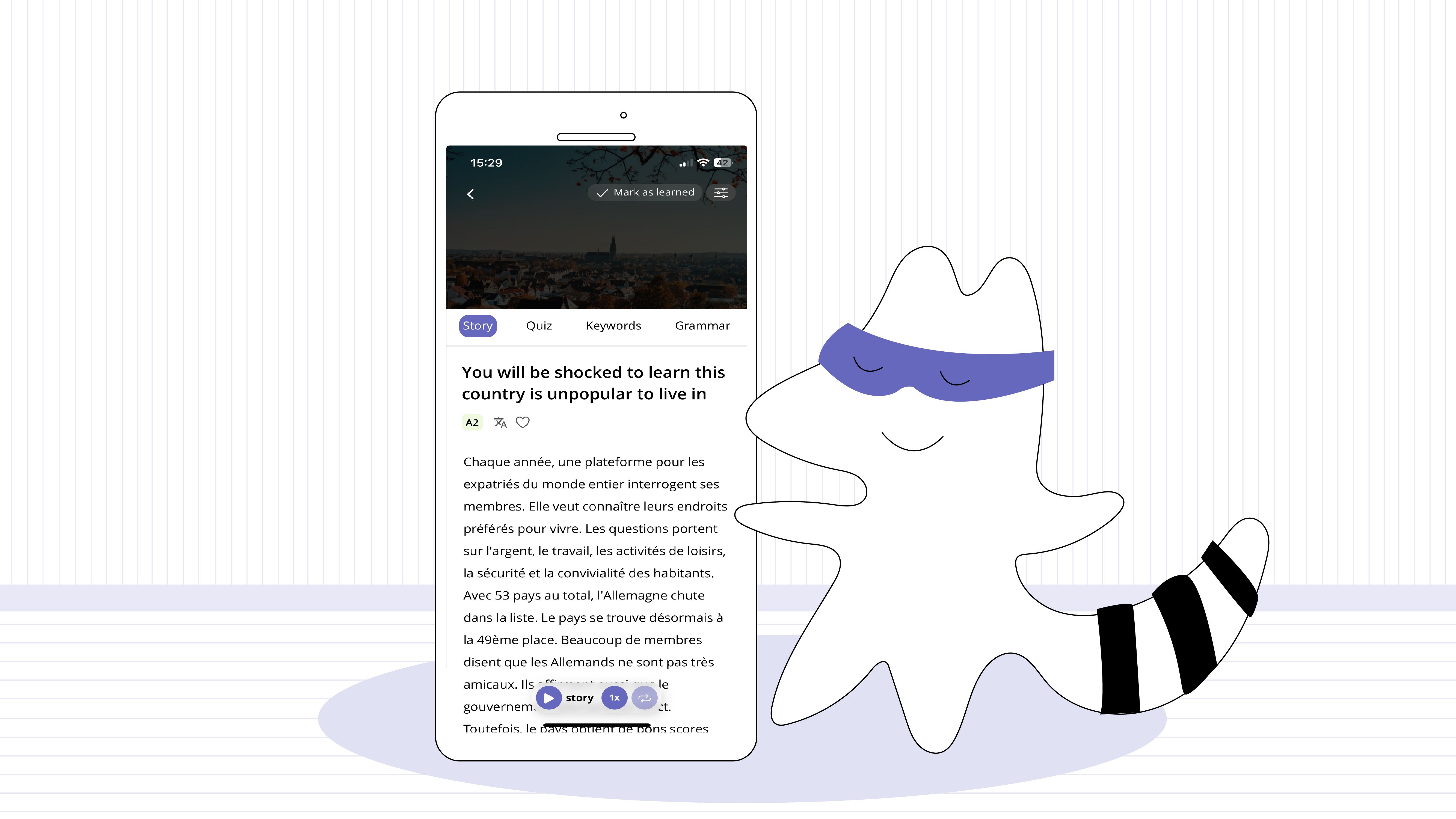
With this understanding of the French "new," you're better equipped to navigate the linguistic labyrinths of this beautiful language. As you savor the journey of learning French, don't shy away from the details, but embrace them as the very essence of the linguistic feast that lies before you.
To dive even deeper into the wonders of French or any other language, consider exploring resources like Langster. With engaging stories, personalized lessons, and interactive exercises, you can turn every day into an opportunity to sharpen your language skills. Download Langster now, and step into a world where every word is a chance to learn, grow, and savor the art of communication.
Remember, mastering a language is like uncovering a neuf world within your own — and what an exciting journey that is. Bon courage et bonne chance!
Learn French with Langster








